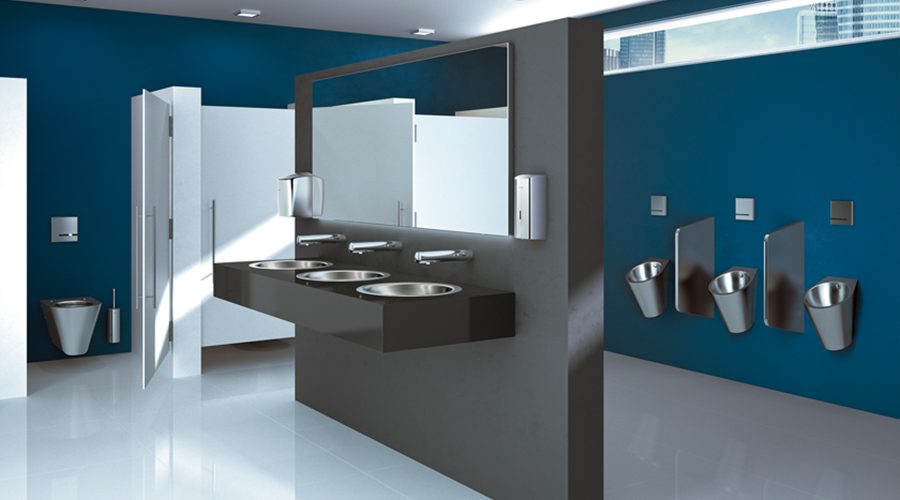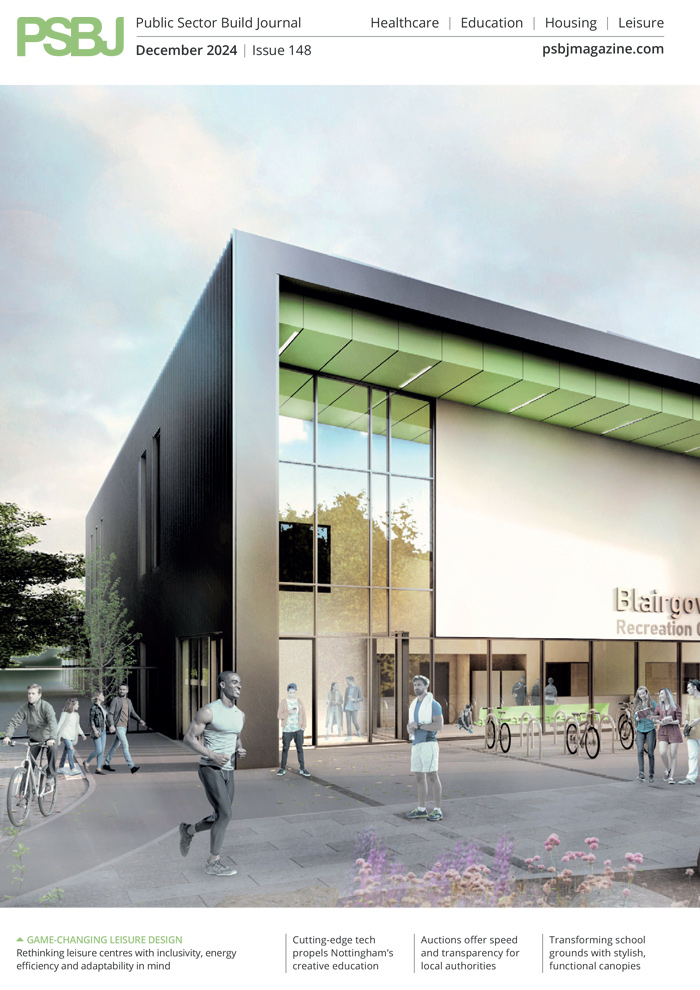As UK lockdown restrictions begin to ease, building owners and facilities managers need to ensure that all buildings – whether they are schools, offices, leisure centres or pubs – minimise the risk of infection for users, particularly their washroom facilities.
Delabie
All public buildings are required to provide facilities for regular users and visitors to wash their hands frequently. This means more intensive use, higher consumption of water and soap and additional cleaning of all surfaces. As the pandemic has progressed, it is apparent that quick, low-cost options are no longer sustainable, and building owners and facility managers need durable and economical solutions to their hygiene challenges.
Built to last
Sensor-operated taps offer the perfect, hygienic solution. They operate without manual contact, preventing the spread of germs. The initial outlay plus installation and repair costs can seem prohibitive, especially with budgets under enormous pressure. However, DELABIE’s TEMPOMATIC 4 tap is simple to install and built to last. When calculated over its lifetime, the savings on installation and maintenance costs are significant. Due to an integrated battery, the only connection is to the water supply, providing a straight swap for cross-head or time flow taps. Plus, all components are standardised and accessed via the body, so servicing is simple – saving time (and money) especially if several are installed. The battery life is 3 to 6 years (350,000 operations) depending on usage patterns, and its solid metal body with reinforced fixings will withstand intensive use and intentional misuse.
TEMPOMATIC 4 reduces water consumption by up to 90% compared to a domestic-style tap, and the resulting savings on the water and energy bill will quickly offset the original investment. Thanks to the sensor, water flows only when hands are detected, closing automatically to avoid waste during soaping. The flow rate is pre-set at 3 litres/minute, but can be adjusted from 1.5 to 6 litres/minute to suit the system pressure and meet environmental targets. Moreover, a duty flush occurs if the tap is not used for 24 hours, refreshing the water in the tap and pipes to prevent stagnation and bacterial development.
Hygiene without cutting corners
Choosing the right soap dispenser is also critical. A leaking, blocked or broken dispenser is ineffective and reflects badly on the overall hygiene standard of the building. At a time of heightened concern for personal safety and well-being, a negative experience due to poor washroom hygiene and maintenance has a detrimental impact.
For effective hand hygiene, dispensers must be reliable and easy to operate. DELABIE’s electronic dispenser works with hand sanitiser (hydroalcoholic gel) and liquid soap. A measured dose is dispensed automatically, up to a maximum of 7 doses to prevent waste. The mechanism and sensor are robust, able withstand intensive use and abuse. The one-piece casing is made from stainless steel, which is easy to clean. Bacterial retention rate after cleaning is up to 20-times lower than materials such as glass or plastic.
In the current climate, user safety and well-being are paramount. Building owners and facilities managers need sustainable and durable solutions for their washroom facilities. DELABIE’s sensor taps and soap dispensers are cost-effective, reliable, hygienic and sustainable – ideal for washrooms facing intensive use.









